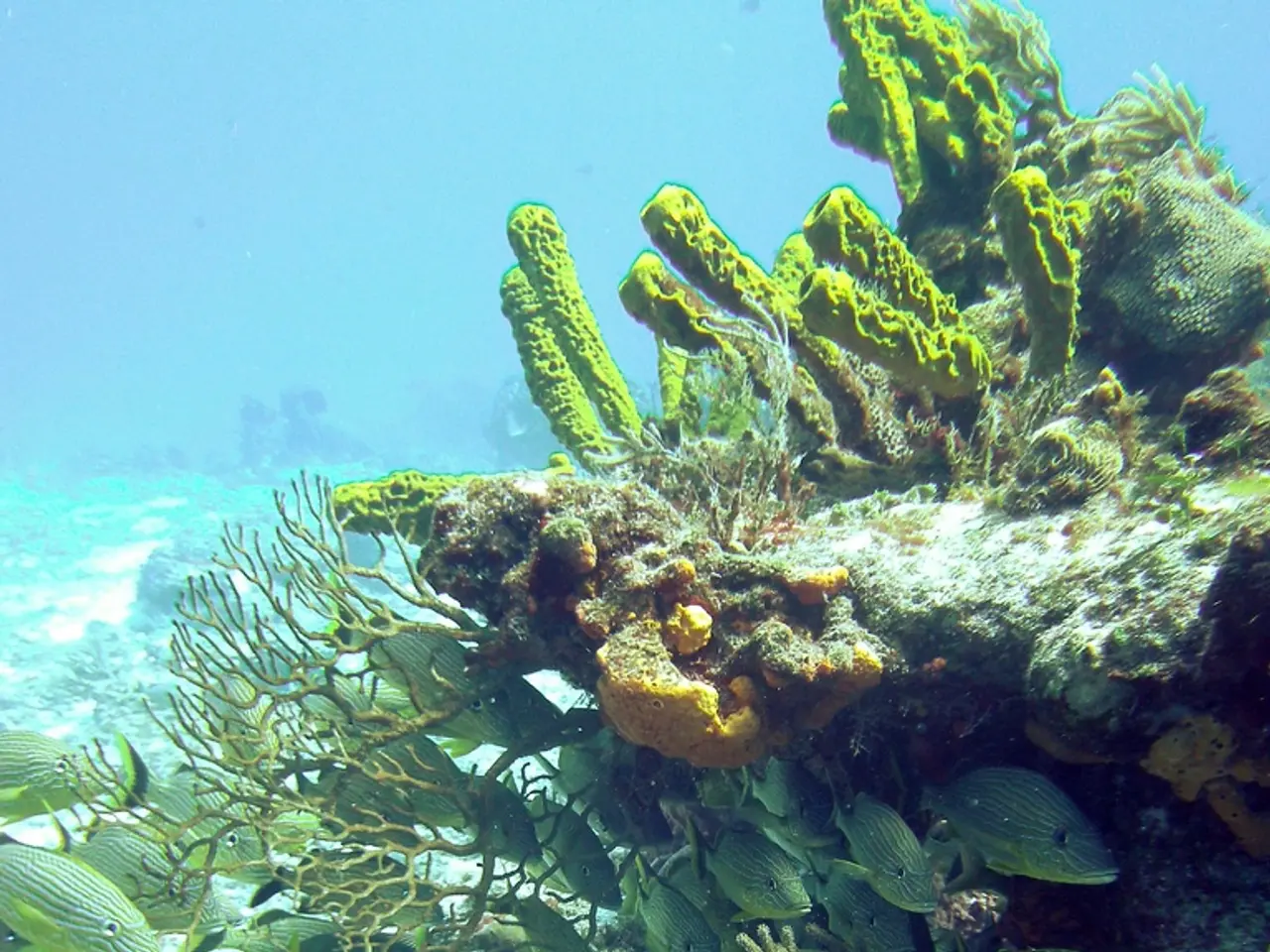Utilizing the Research Vessels of American Academia for Swift Deep-Sea Discovery and Description
The United States Academic Research Fleet (ARF) is a network of advanced oceanographic research vessels, operated by academic institutions with support from federal agencies, primarily for marine scientific research. The ARF's mission encompasses oceanographic, biological, and geological research, with a significant focus on seabed mineral surveys.
The ARF is equipped with state-of-the-art instrumentation, including submersibles, Remotely Operated Vehicles (ROVs), and Autonomous Underwater Vehicles (AUVs) for detailed visual surveys, fine-scale mapping, and targeted sampling. Vessels are also equipped with winches and handling systems for deploying various coring devices, dredges, and grabs for geological, geochemical, microbial, and resource quantification analysis.
One of the key roles of the ARF is in foundational scientific research, such as seafloor mapping, geological sampling, and environmental characterization. These activities help identify mineral-rich areas, assess environmental impacts, and inform regulatory decisions, thereby supporting national security objectives by de-risking and enabling domestic mineral supply chains.
Recent U.S. policy has prioritized seabed mineral exploration as a matter of national security and economic strategy. An April 2025 Executive Order declares it U.S. policy to "advance United States leadership in seabed mineral development," with the goal of reducing dependence on foreign sources of critical minerals like cobalt, lithium, and nickel. The order calls for investment in deep-sea science, mapping, and technology, with the aim of building a robust domestic supply chain for seabed-derived critical minerals.
While the ARF is not explicitly mentioned in these policy documents, its scientific missions are critical for responsible mineral resource management. The ARF's contributions are foundational, enabling the United States to pursue seabed mineral resources in a way that is scientifically informed, environmentally responsible, and strategically sound.
Large areas of the global seabed, including significant portions of the U.S. Exclusive Economic Zone (EEZ), remain unmapped and poorly understood. The ARF, with its extensive experience in global ocean operations, offers an immediate and outstanding domestic capability to significantly accelerate the mapping and characterization of seabed mineral resources and associated biological communities.
Strategic investment in and dedicated utilization of the ARF for targeted seabed resource assessment campaigns offers a timely and efficient means to enhance resource security and geopolitical standing. The ARF's advanced multibeam echo sounder systems for high-resolution bathymetry and acoustic backscatter data collection are crucial for accelerating data collection through systematic surveys, which is paramount to identifying and quantifying potential resources as well as associated biological communities.
In conclusion, while the U.S. Academic Research Fleet does not appear to be the primary driver of recent seabed mineral resource assessment campaigns in the United States, its scientific missions underpin national efforts to secure critical minerals, advance deep-sea research, and inform policy. The ARF's contributions are foundational, enabling the United States to pursue seabed mineral resources in a way that is scientifically informed, environmentally responsible, and strategically sound.
- The ARF's mission extends beyond oceanographic research, encompassing marine biology as well, contributing to the broader field of science.
- Climate-change is an issue that impacts the ocean, and understanding its role is crucial for the ARF's ongoing marine scientific research.
- Renewable-energy, a key component of the industry, relies heavily on resources extracted from the ocean floor, making the ARF's research vital for future energy production.
- Environmental-science closely intertwines with the ARF's activities, ensuring that seabed mineral surveys consider potential impacts on the environment.
- Finance plays a role in the exploitation of seabed minerals, with investments required for deep-sea science, technology, and infrastructure.
- Business interests are aligned with the ARF's work, as the housing-market and real-estate sectors rely on data-and-cloud-computing technologies that can be improved through oceanographic research.
- The world of sports, including sports-betting, is increasingly incorporating technology for improved performance and analysis, benefiting from innovations sparked by the ARF's studies.
- Ultimately, the ARF's contributions go beyond oceanographic research, impacting various sectors such as industry, finance, business, housing-market, real-estate, technology, sports, and sports-betting.




